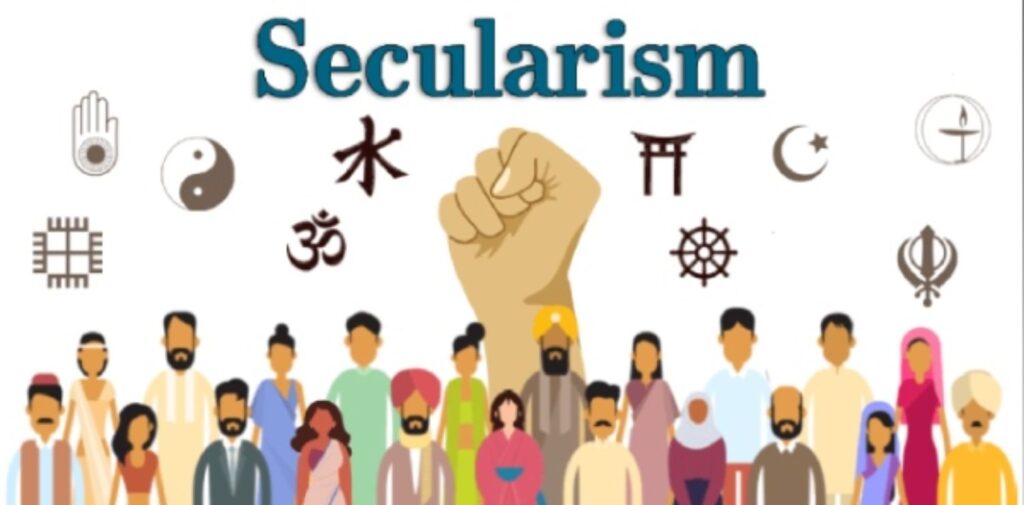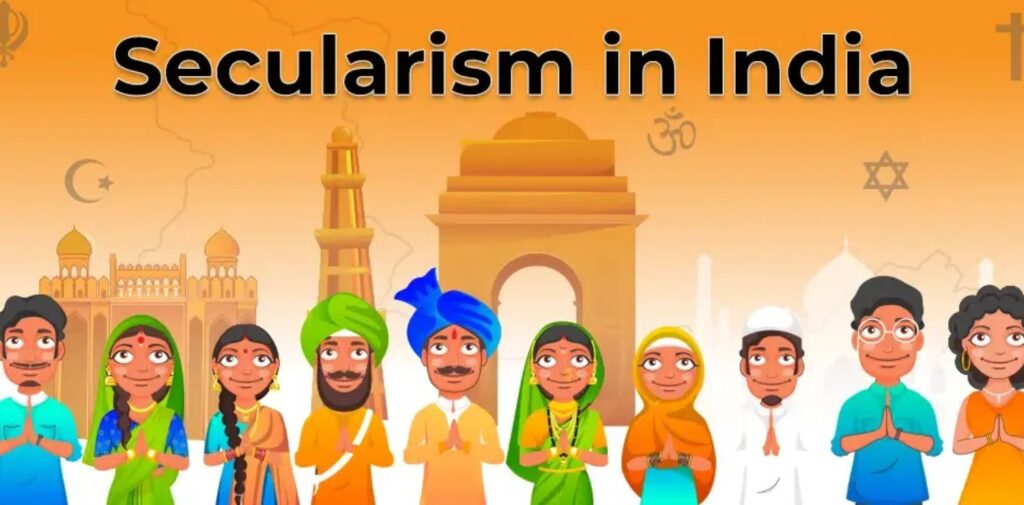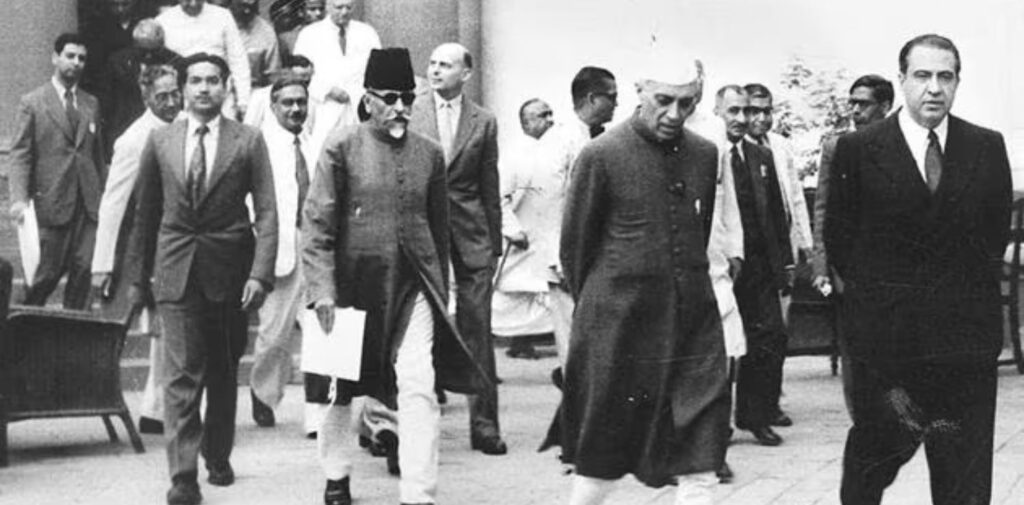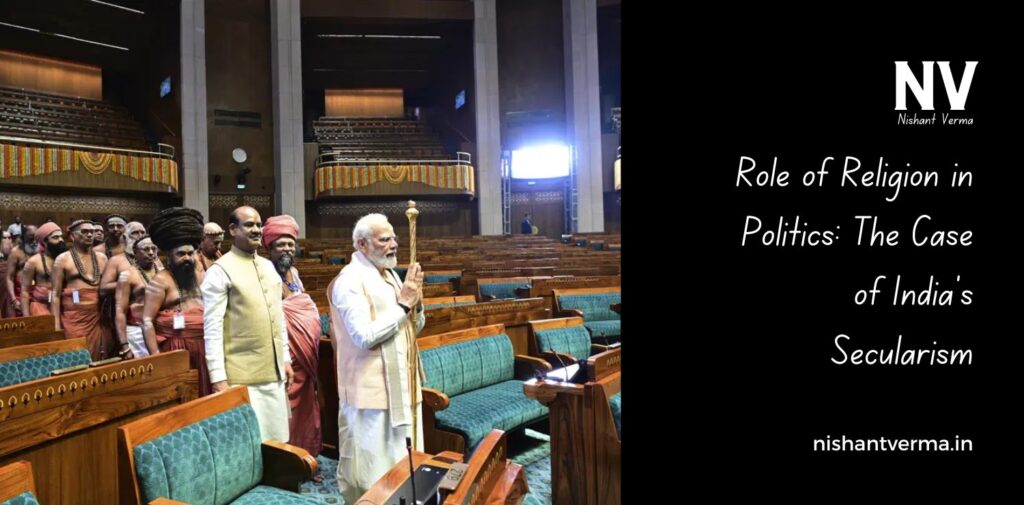Religion plays a very important role in the lives of many people. In India, religion is a part of everyday life, and the country is home to people who follow many different religions. There are Hindus, Muslims, Christians, Sikhs, Buddhists, Jains, and many other faiths. Despite this diversity, India is a secular country, which means that the government does not favor any one religion over another. In this article, we will explore the relationship between religion and politics in India, how secularism works, and the challenges faced by the country in keeping religion separate from politics.

What Is Secularism?
Secularism means that the government treats all religions equally and does not support or oppose any one religion. In a secular country, the government does not make laws based on religious beliefs. It respects the rights of people to practice their religion freely and without interference. India’s Constitution, which was written in 1950, declares that India is a secular state. This means that the government is not allowed to favor one religion over another. Everyone is free to follow their religion, and the government should not mix religion with politics.
Religion and Politics in India’s History
Religion has always been a part of India’s history. The country has seen the rise and fall of various empires, many of which were influenced by religion. For example, during the Mughal Empire (1526–1857), Islam was an important part of the royal court. In the 20th century, during British rule, religion became a big issue when India was divided into two countries—India and Pakistan—based on religious differences. Pakistan was created as a homeland for Muslims, while India remained a multi-religious country.
After India gained independence in 1947, the country’s leaders wanted to create a nation where people of all religions could live together peacefully. Leaders like Jawaharlal Nehru, the first Prime Minister of India, believed in the idea of secularism. They did not want any religion to control the government or influence the laws of the country. This idea of secularism was written into the Constitution of India to ensure that everyone, regardless of their religion, would be treated equally by the government.

The Challenges of Secularism in India
While India is a secular country, the relationship between religion and politics has not always been easy. Religion continues to play an important role in the political life of the country. There are many reasons why this happens:
- Religion and Votes: In India, political parties often appeal to religious groups for votes. This can lead to the mixing of religion and politics. Some politicians use religious identity to gather support from certain communities. They might make promises or speeches based on religious beliefs, which can divide people into groups based on their religion. This is sometimes called “vote bank politics.” While political parties may say they support all religions, they often focus on the interests of specific religious groups to win elections.
- Religious Groups and Social Movements: In India, religious groups sometimes form social movements to push for their rights or demands. For example, some Hindu groups have pushed for laws and policies that promote Hindu traditions, while some Muslim groups have asked for laws that protect their religious practices. These movements can influence the political decisions of the government. Sometimes, these demands can create tension between different religious groups, leading to conflicts or violence.
- Religious Extremism: Sometimes, certain religious groups or individuals use religion to create fear and hatred against others. This is called religious extremism. In India, there have been instances where religious extremism has led to violence between different religious communities, especially between Hindus and Muslims. This violence often creates a sense of division in society, making it harder to maintain the country’s secular values.
- Religious Laws and Politics: In India, some laws are based on religious beliefs. For example, the Muslim community in India follows personal laws related to marriage, divorce, and inheritance, which are based on Islamic principles. Similarly, there are laws for Hindus, Christians, and other religious groups. While these laws are meant to protect the religious freedom of individuals, they sometimes clash with the idea of a uniform civil code (a set of laws that applies to all citizens equally, regardless of religion). The debate over whether or not India should have a uniform civil code is an ongoing issue in Indian politics.
How Does Secularism Work in India?
Secularism in India is meant to ensure that no religion has power over the government. However, religion still influences politics in several ways. Let’s take a look at how secularism works in India, despite the challenges.
- Freedom of Religion: The Indian Constitution gives every citizen the freedom to practice any religion. This means that people can follow their faith openly without fear of punishment or discrimination. It also means that the government cannot tell people which religion to follow. In a secular country, people have the right to build places of worship, follow religious festivals, and celebrate their beliefs in any way they choose.
- Religious Pluralism: India is a country of many religions, and secularism ensures that everyone can live together peacefully, regardless of their religion. Religious pluralism means that all religions are given equal respect. In India, religious festivals are celebrated by people of different faiths, and people from different communities often share their cultural practices. For example, Hindu festivals like Diwali are celebrated by people from other religions, and Muslims celebrate festivals like Eid with their non-Muslim neighbors. Secularism helps to maintain this sense of unity in diversity.
- Government and Religion Are Separate: In India, the government is meant to be separate from religion. This means that the government should not interfere in religious matters or make laws based on religion. For example, the government cannot pass a law saying that only Hindus can do something, or only Muslims can have certain rights. The law must apply to everyone, regardless of their religion.
- Protection of Minorities: Secularism also helps protect the rights of religious minorities. India has many minority communities, and secularism ensures that they are not treated unfairly or oppressed. The government makes special provisions for minorities in areas like education, employment, and political representation to make sure they are treated equally.
The Role of Religion in Elections
In Indian elections, political parties often seek the support of religious groups. This can be seen in the way parties target specific communities during election campaigns. Some parties may make promises to religious groups, while others may use religious symbols or slogans to attract votes. While this can help parties win elections, it can also create divisions in society. This is why it is important for leaders to keep religion and politics separate to avoid creating tensions.

Secularism and the Future of India
India’s secularism has faced many challenges over the years, but it is still a key part of the country’s identity. In a country as diverse as India, secularism helps people of all religions live together peacefully and with respect for each other. However, it is important for the people of India to continue working towards a society where religion does not create divisions or conflicts. Secularism must be protected so that every individual, regardless of their religion, can live with freedom, dignity, and equality.
Conclusion
India is a country of many religions, and religion plays an important role in the lives of many people. The idea of secularism, written into the Constitution, ensures that the government treats all religions equally and does not mix religion with politics. While secularism has helped India remain united despite its diversity, it is not always easy to keep religion out of politics. Political leaders, political parties, and citizens must work together to ensure that India remains a secular country where everyone, regardless of their faith, can live peacefully and with equal rights.




